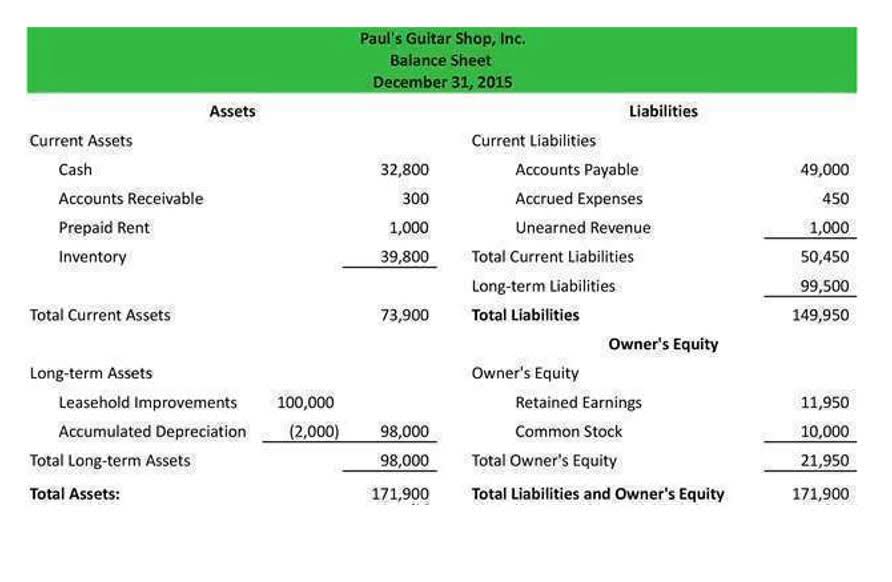Accounting consultants evaluate existing financial processes and identify areas where improvements can be made. They streamline processes, automate tasks, and implement efficient systems to enhance productivity and reduce costs. By optimizing financial operations, accounting consultants help businesses save time and resources, improving overall efficiency. As a senior accountant analyst, your main role is to provide professional guidance to a company. You need to have excellent preparation skills to create financial reports that clearly state the expenses and forecast the company’s financial future.
Accounting & Financial Reporting Consultant: What They Do & How They Help
- Accounting consultants must have a strong educational background in accounting or a related field.
- They collaborate with the management team to set financial goals, create realistic budgets, and establish performance metrics.
- In order to drive growth in an ever-changing landscape, every company needs to have solid processes for accounting and financial reporting.
- A bachelor’s degree in accounting or a related field serves as the foundational education, while higher degrees like an MBA or MAcc can provide specialized knowledge.
Freelance accounting consultants have the greatest control over their workload and can work with fewer clients, if they choose. Accounting consultants often provide training and education to clients https://www.facebook.com/BooksTimeInc and their teams. They conduct workshops, seminars, and one-on-one sessions to enhance financial literacy and empower individuals to make better financial decisions. By imparting knowledge and skills, accounting consultants contribute to the overall financial well-being of the organization.
Evaluating Qualifications and Experience
An Accounting Consultant is a person tasked to assist the accounting department of a company. The consultant advises businesses concerning the accounting system used by the organization. The accounting consultant also helps businesses conform to legal policies set about by State and Federal legislation. Accounting Consultants should possess strong numeracy and analytical skills to interpret complex financial data.
Auditing and Assurance Services
- We calculated that 15% of Accounting Consultants are proficient in CPA, GAAP, and Reconciliations.
- Independent consultants and those who establish their consultancy businesses have the potential to earn even more.
- Accounting consulting jobs require a strong background in financial controls, regulations and accounting procedures to tailor services to the client.
- They must record cost information to be used in controlling expenditures as well as recommend cost efficiencies in new product layouts.
- With decades of collective expertise and access to an unparalleled database of interview questions, we are dedicated to empowering job seekers.
- Their unique skill set makes them valuable assets to any organization, keeping their services in high demand.
They encounter complex situations that require innovative solutions, ensuring their work is far QuickBooks from mundane. Assurance services are another critical area where these professionals provide unbiased opinions on the credibility of financial statements. Their expertise in analyzing financial data, developing strategic plans, and managing financial risks is highly valued across industries. Shifting demographics, changes in consumer behavior, a dynamic tax and regulatory environment, technology, and a multitude of other factors are having a profound impact on the future of accounting.
- Our team of reviewers are established professionals with decades of experience in areas of personal finance and hold many advanced degrees and certifications.
- They should also be knowledgeable in various accounting software, principles, and regulations.
- Maybe you can even hit a few buttons and send an invoice to clients or generate a cash flow statement.
- 11 Financial’s website is limited to the dissemination of general information pertaining to its advisory services, together with access to additional investment-related information, publications, and links.
- Conventionally, accountants bill for time spent, whereas a consultant usually provides up-front pricing for specific consulting engagements, above and beyond the hourly billing for compliance and technical services.
- When looking at an Accounting Consultant’s resume, first check their educational qualifications.
Written by True Tamplin, BSc, CEPF®
Successful accountant consultants have strategies to navigate these hurdles despite the inherent challenges. Given the nature of their work, accountant consultants need to be precise and thorough. Specific periods, like the end of the fiscal year or tax season, can require extended working hours accounting consulting to meet clients’ needs.
- They can identify potential financial risks and recommend strategies to avoid or minimize them, helping businesses avoid costly mistakes and safeguard their financial stability.
- Getting started can be as simple as merely getting your name out there to your existing clients and referral sources or as complicated as starting a business from the ground up.
- Accounting consultants with more than 3 years of experience often develop their skills in roles such as Junior Accountant, Auditor, or Financial Analyst.
- He/she will give report to the payroll manager and will function closely with the retail stores, as well as other units within the organization to guarantee prompt and precise delivery of payroll each day.
- As businesses evolve and financial landscapes become more complex, the need for skilled individuals who can navigate, streamline, and protect our financial structures grows.
If you want to become an accounting consultant, you will need to have strong analytical and mathematical skills. You must be able to understand and interpret financial data, and you will need to be able to communicate your findings clearly to clients. It is also important that you are able to work well under pressure and meet deadlines. An accounting consultant provides analysis and advice to businesses on financial matters. They may work with businesses of all sizes, from small businesses to large corporations. Accounting consultants typically have a background in accounting and finance, and they use their knowledge to help businesses make informed decisions about their finances.





